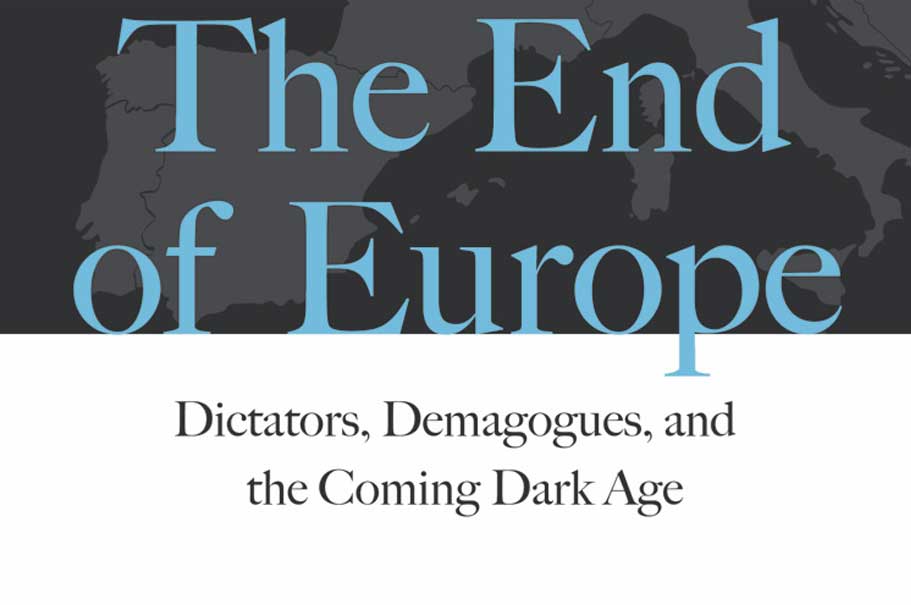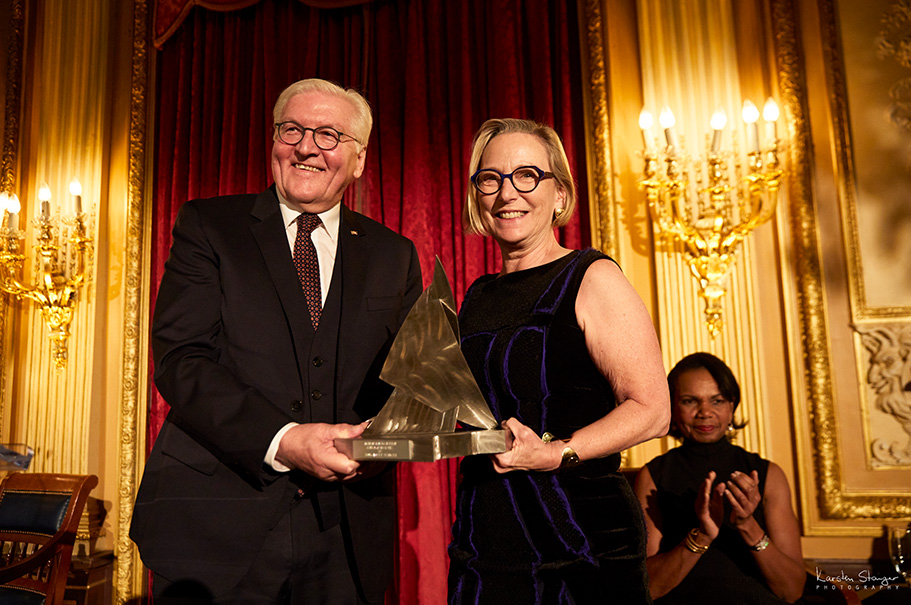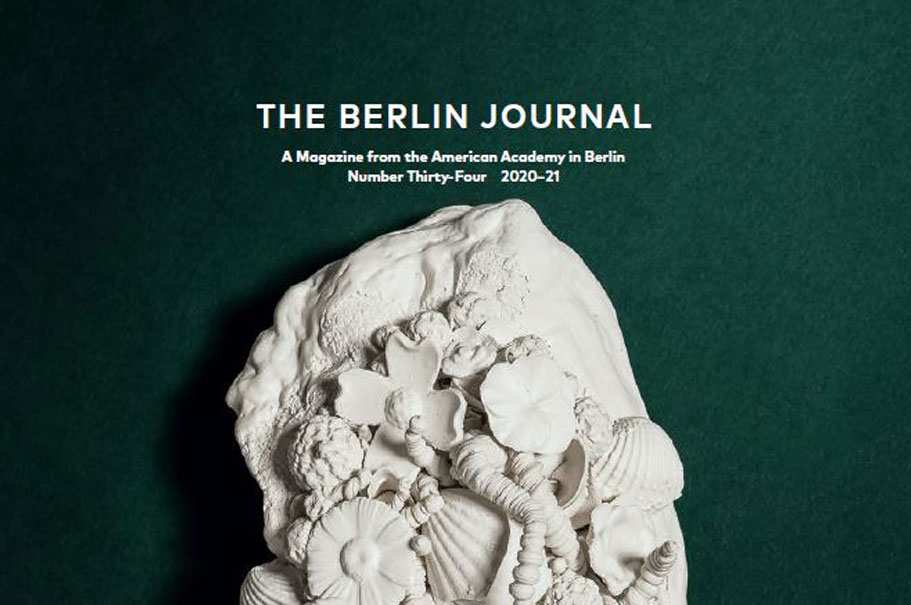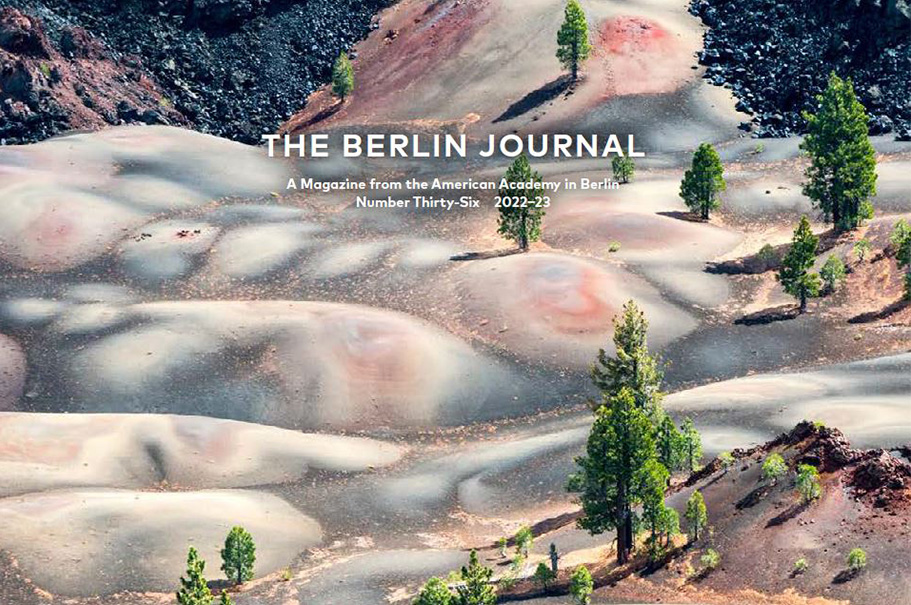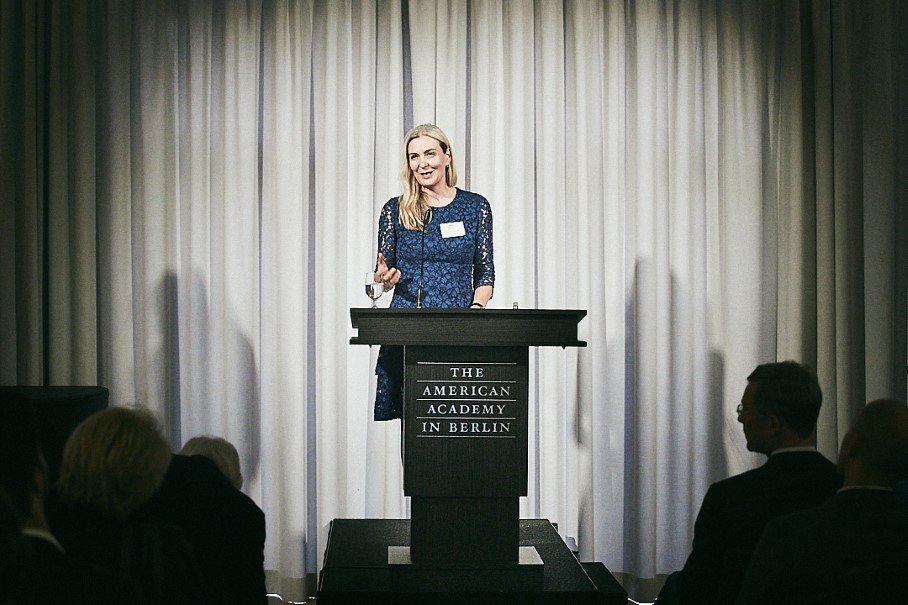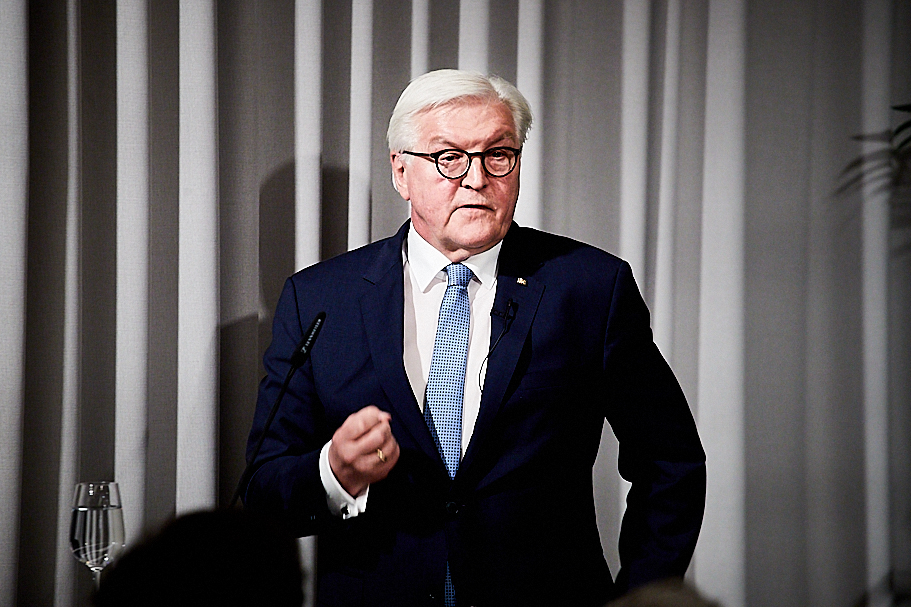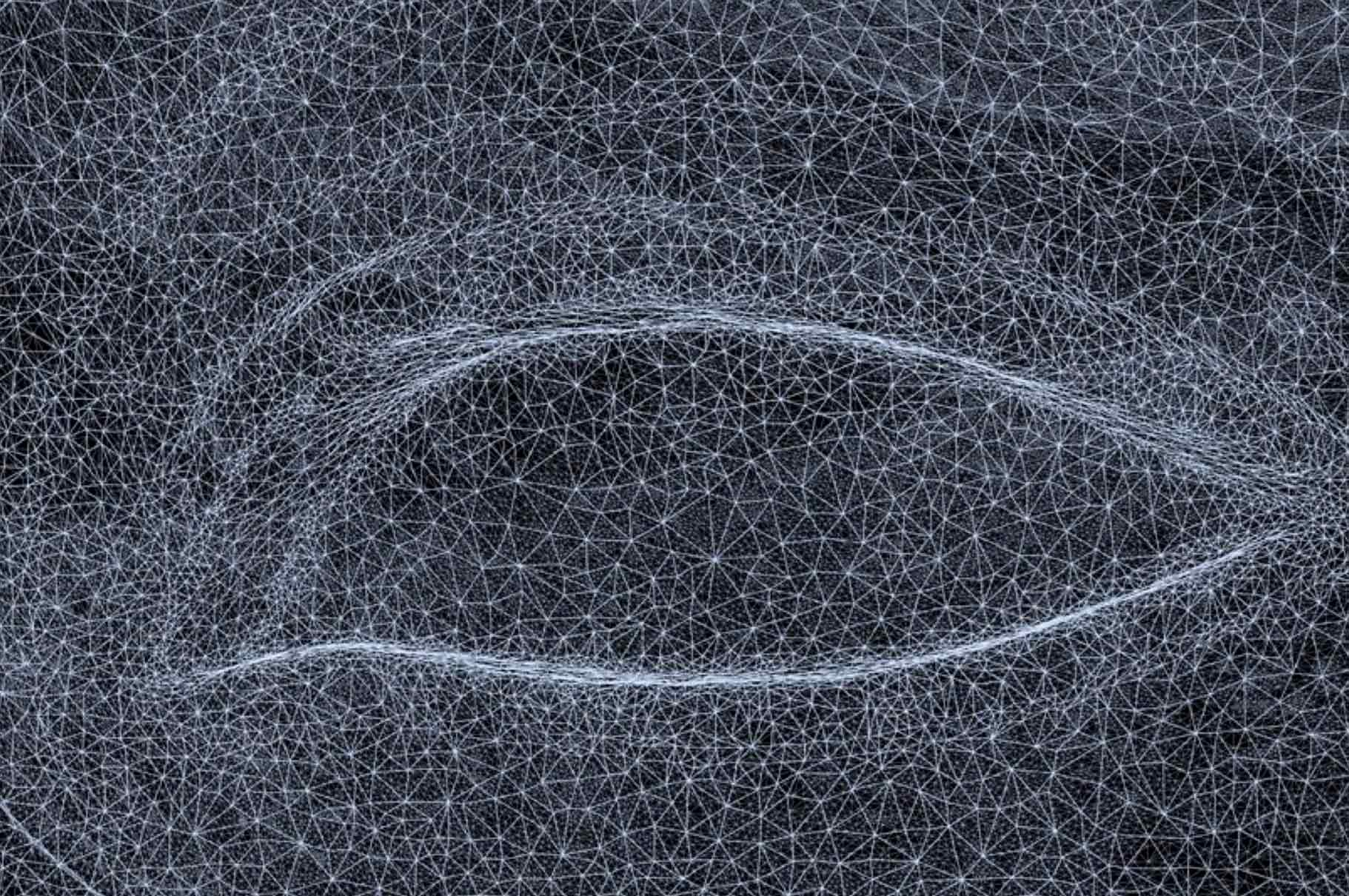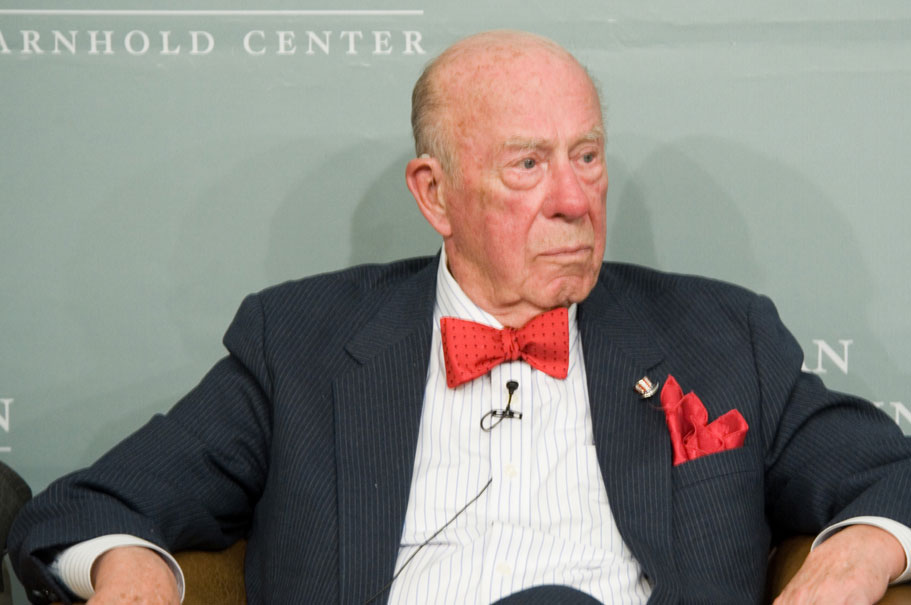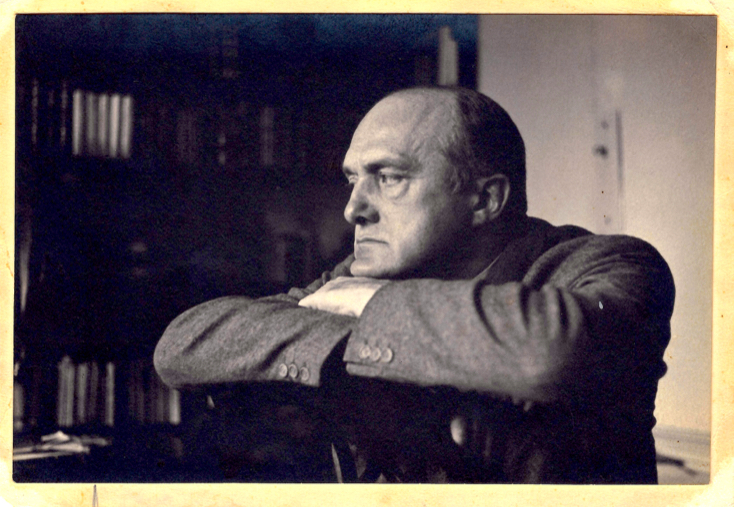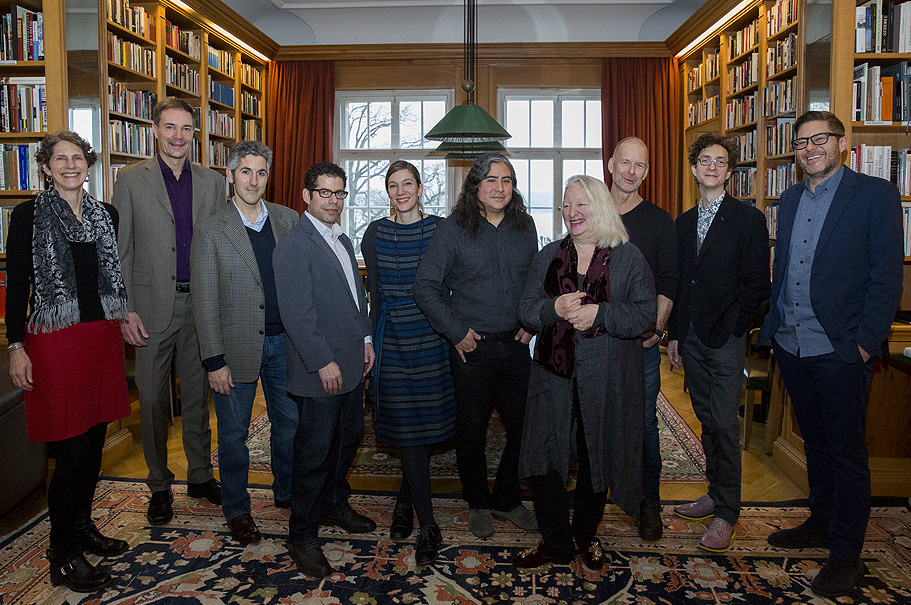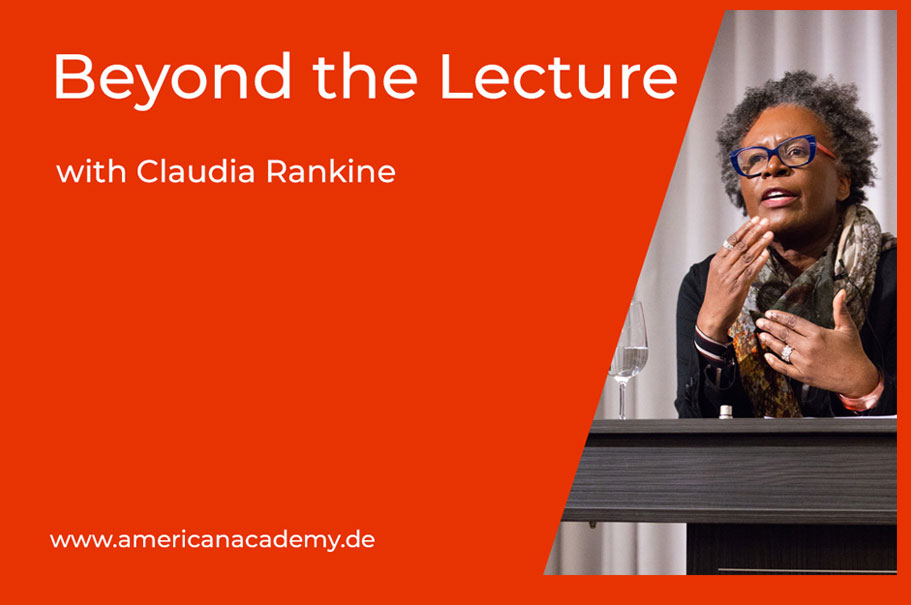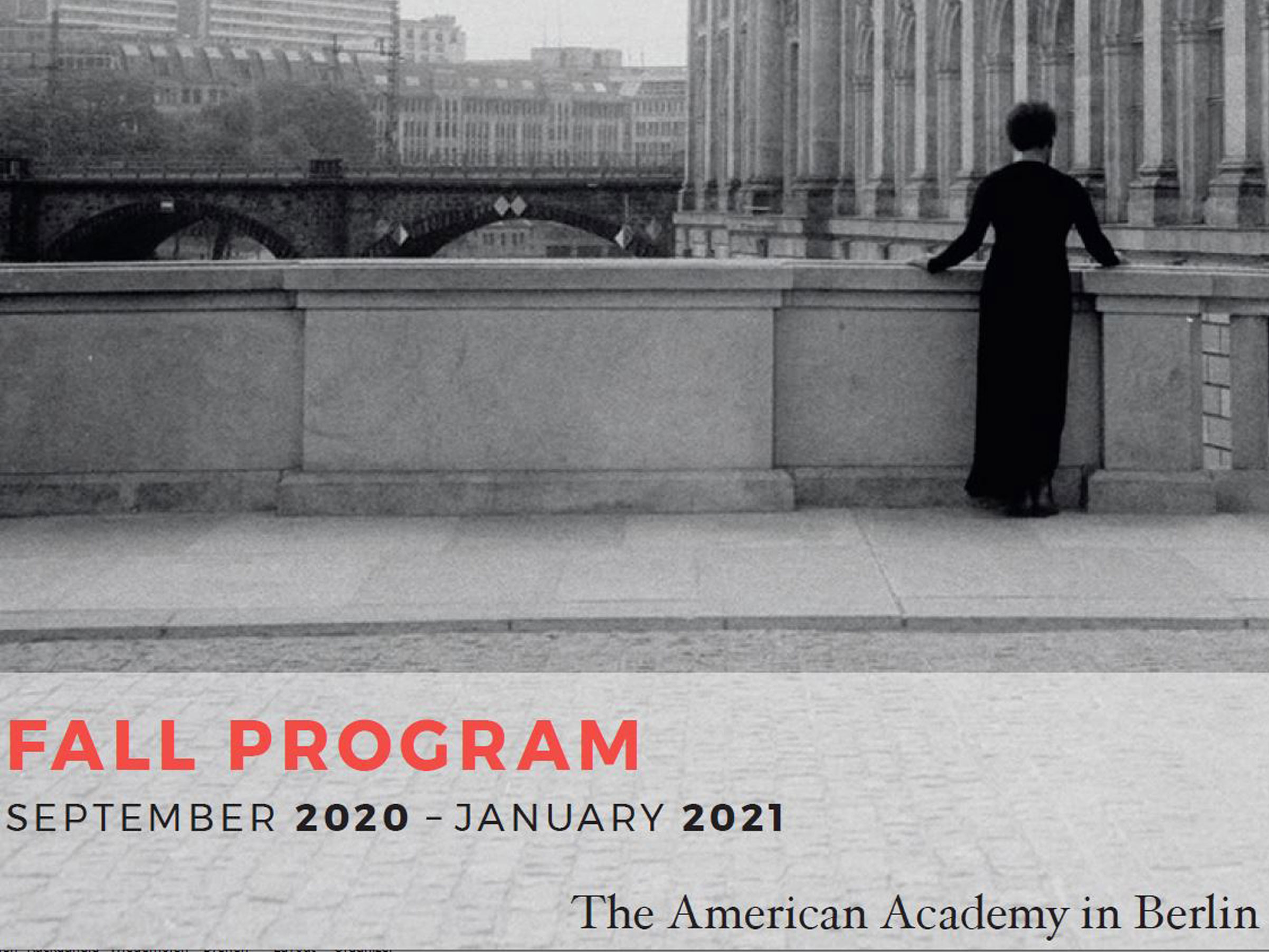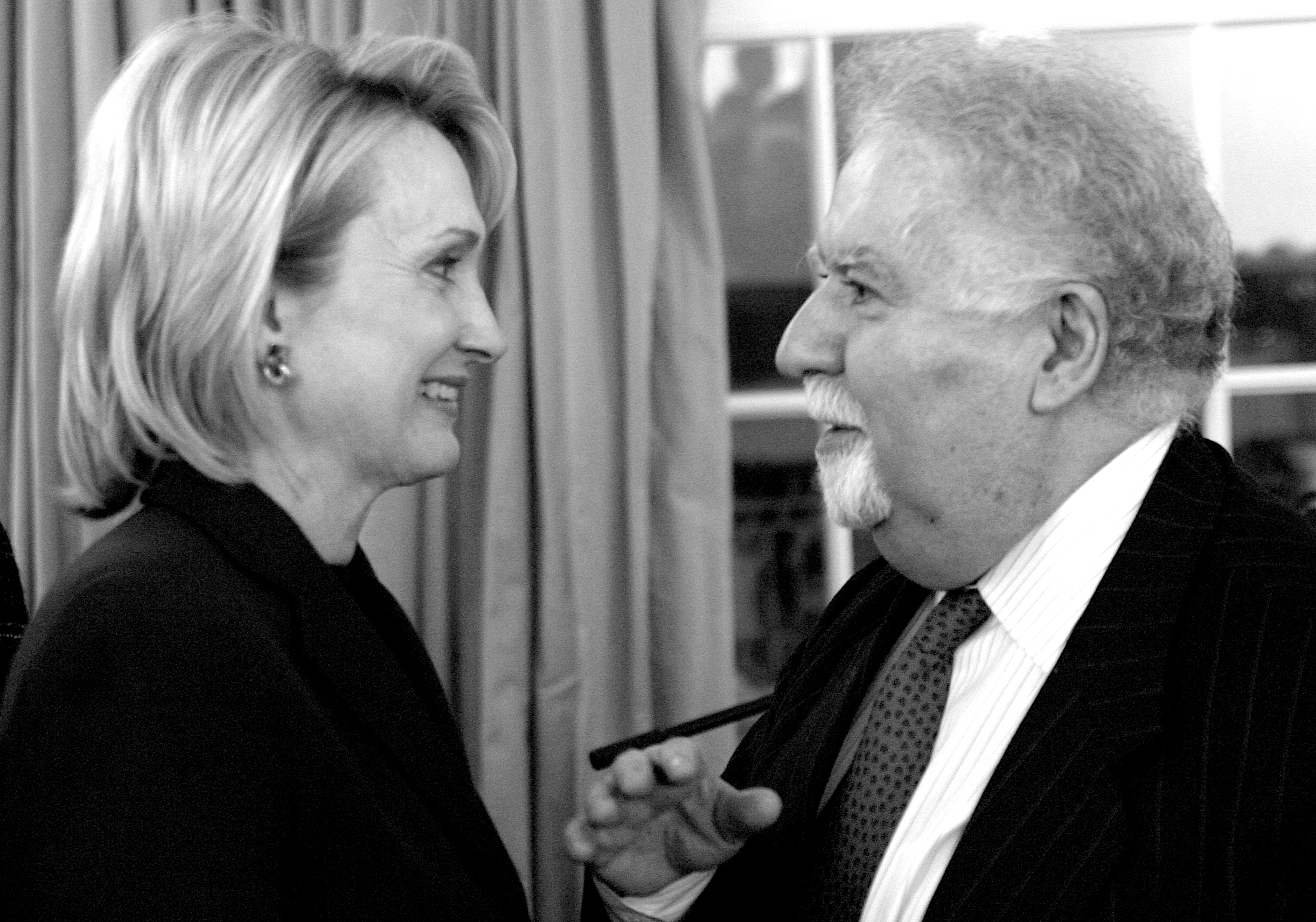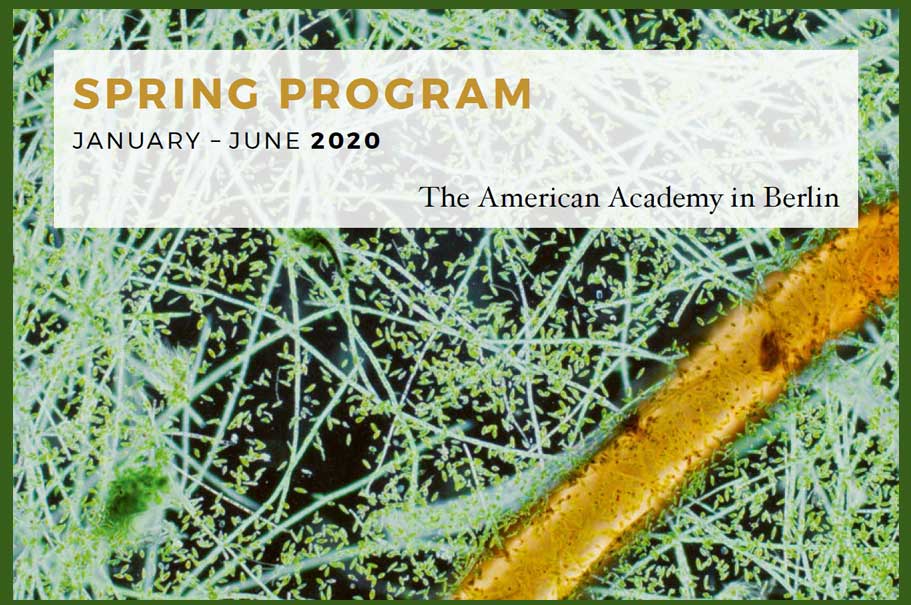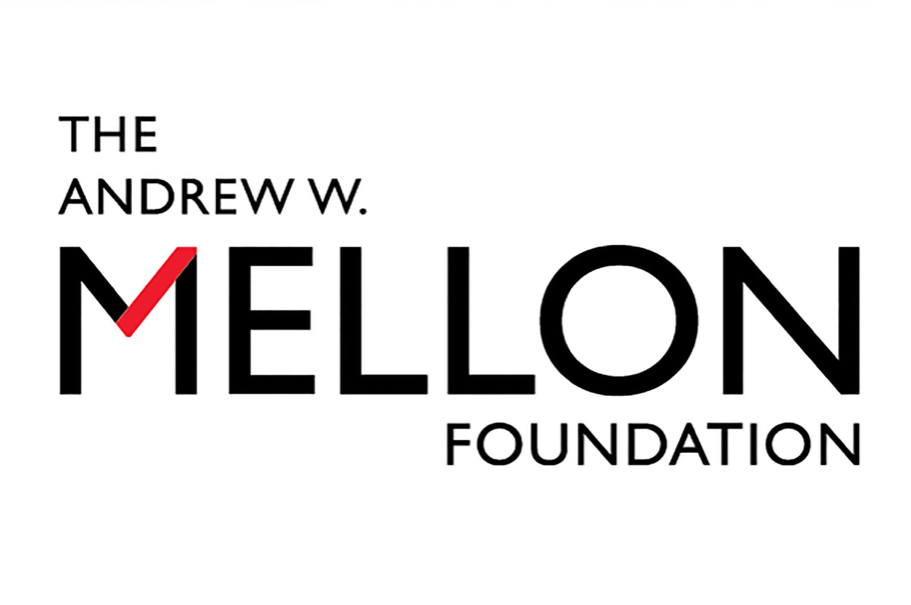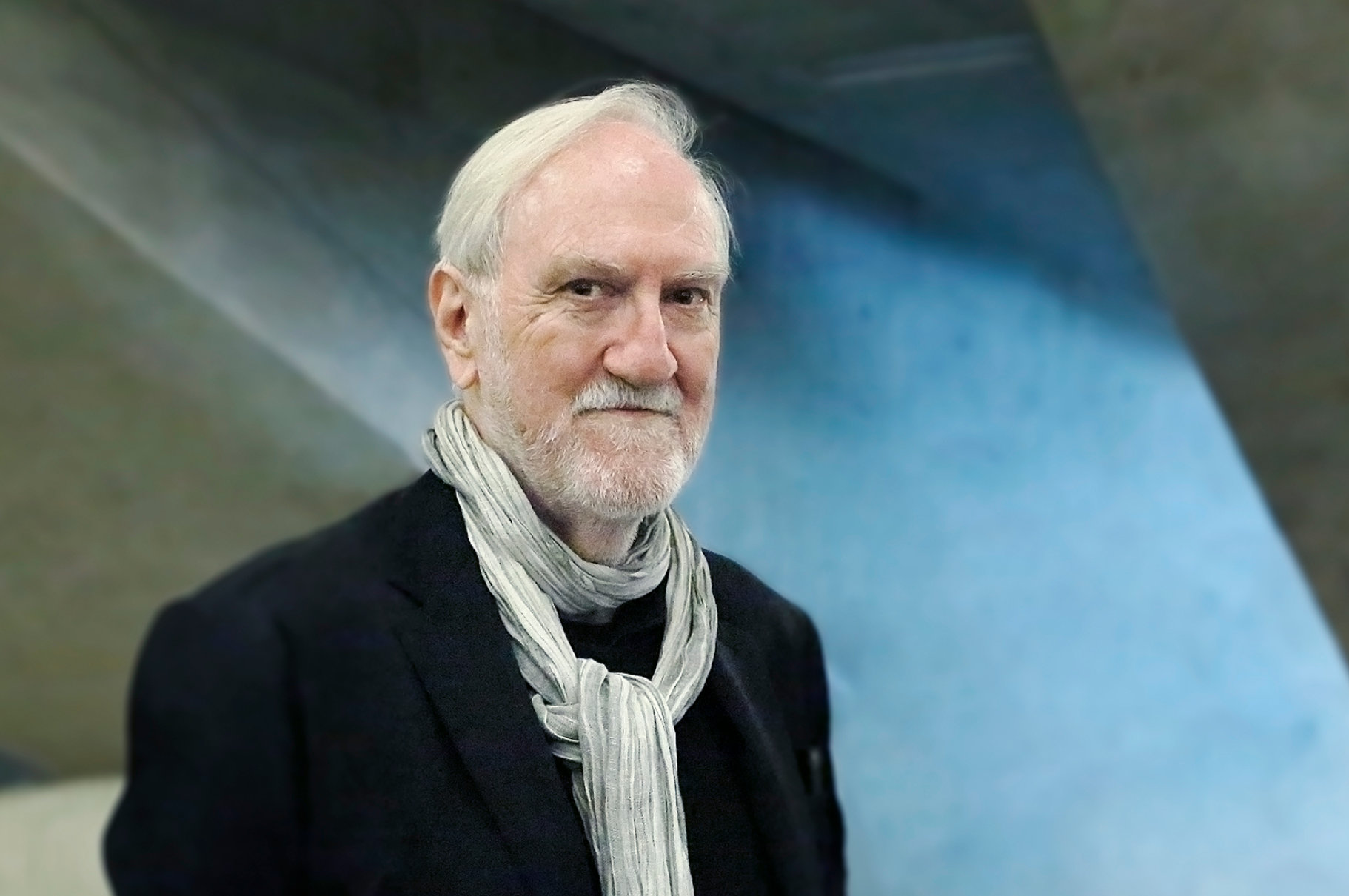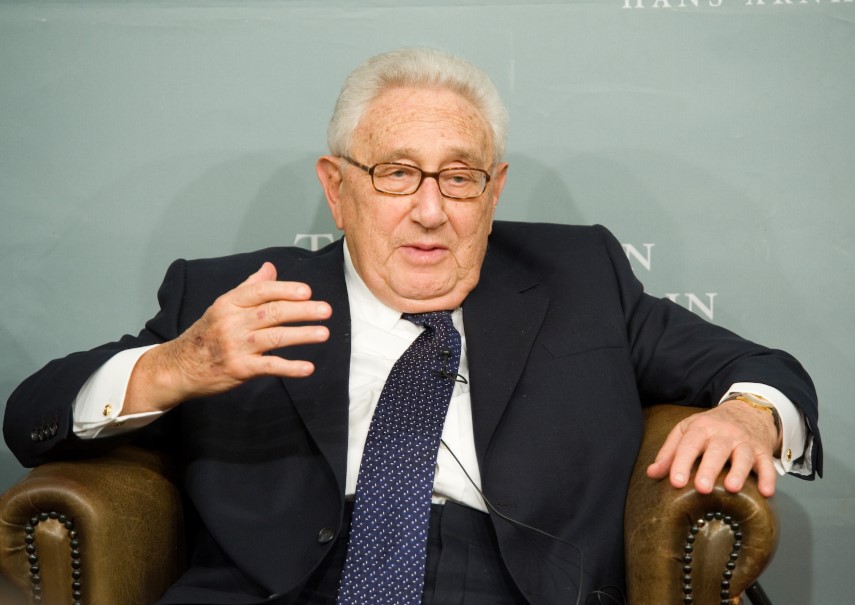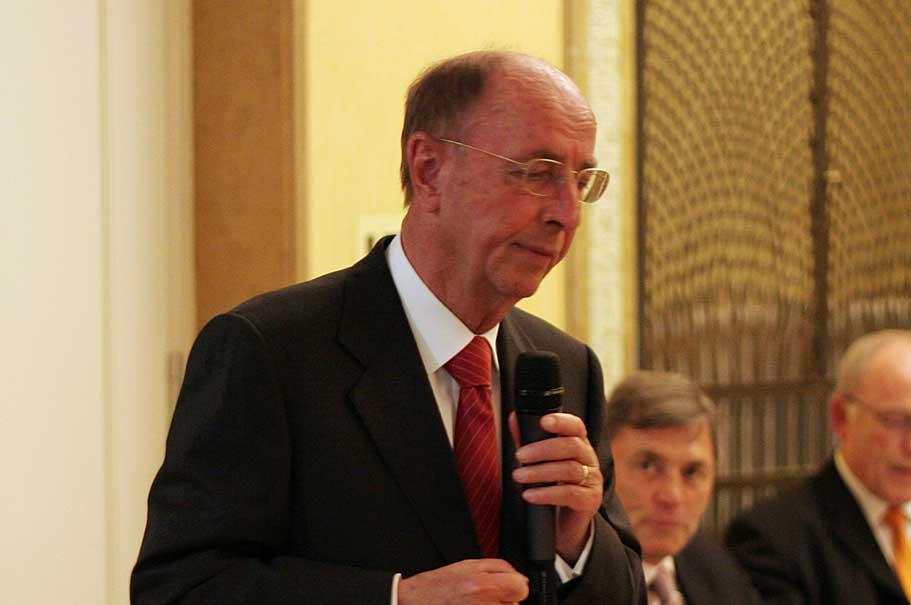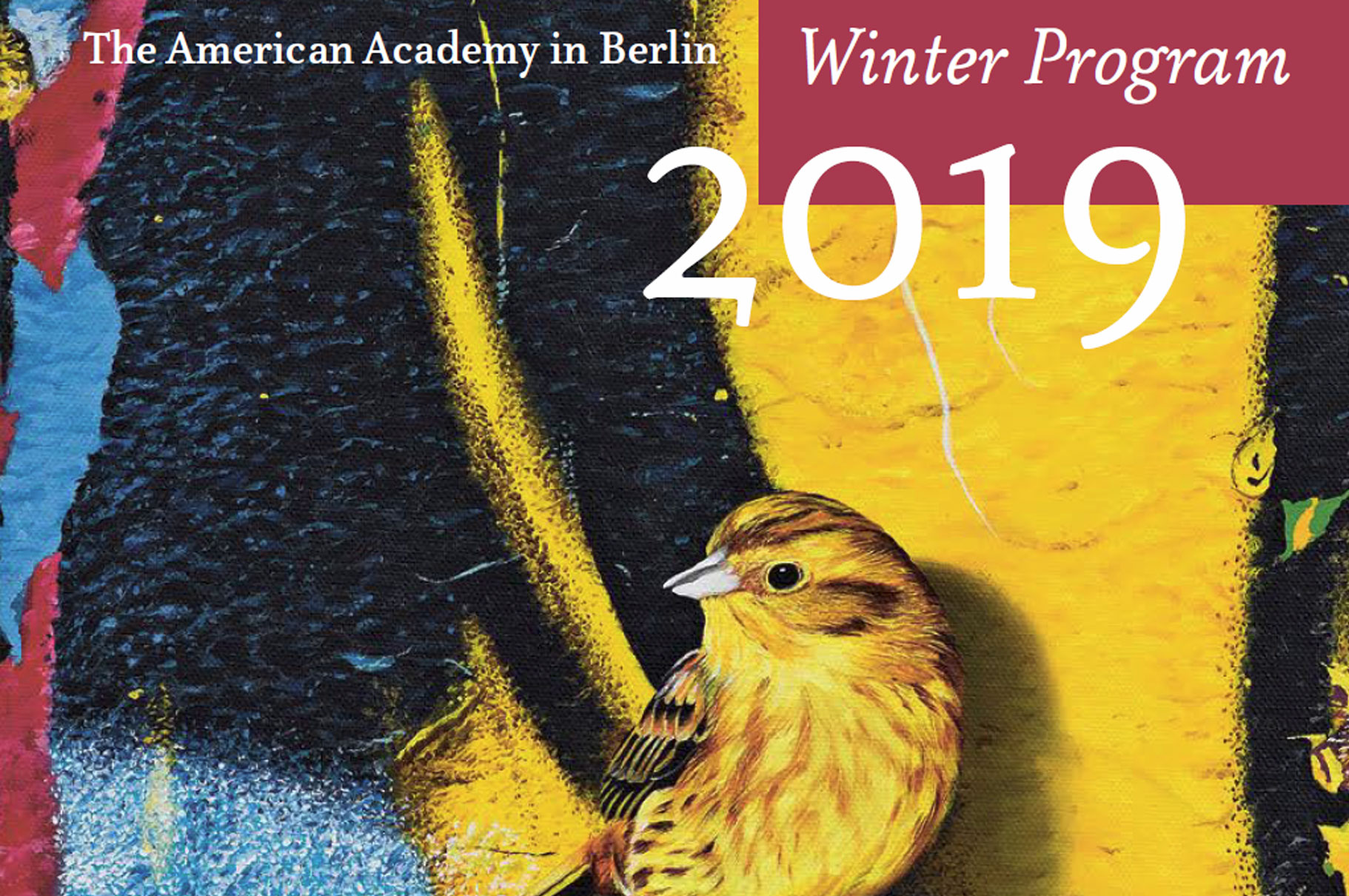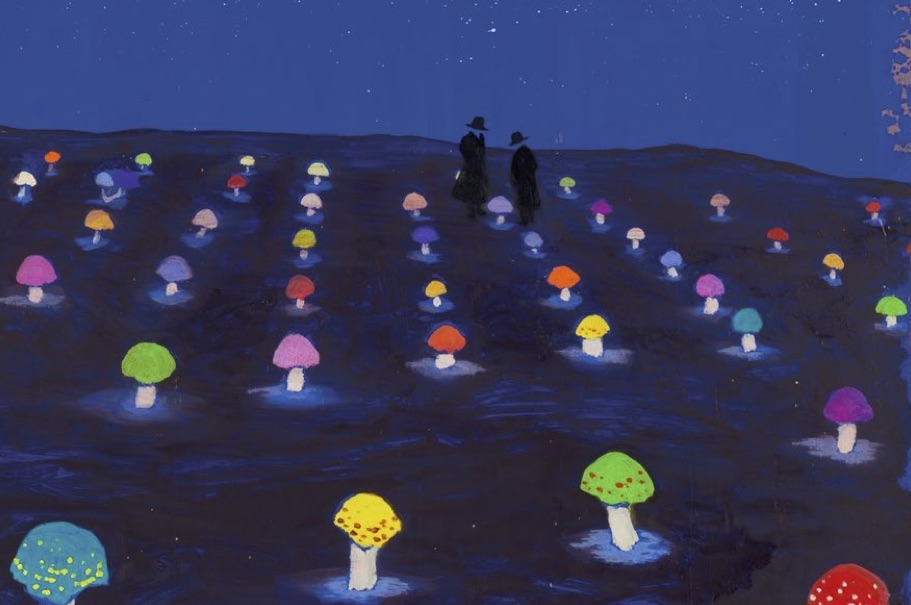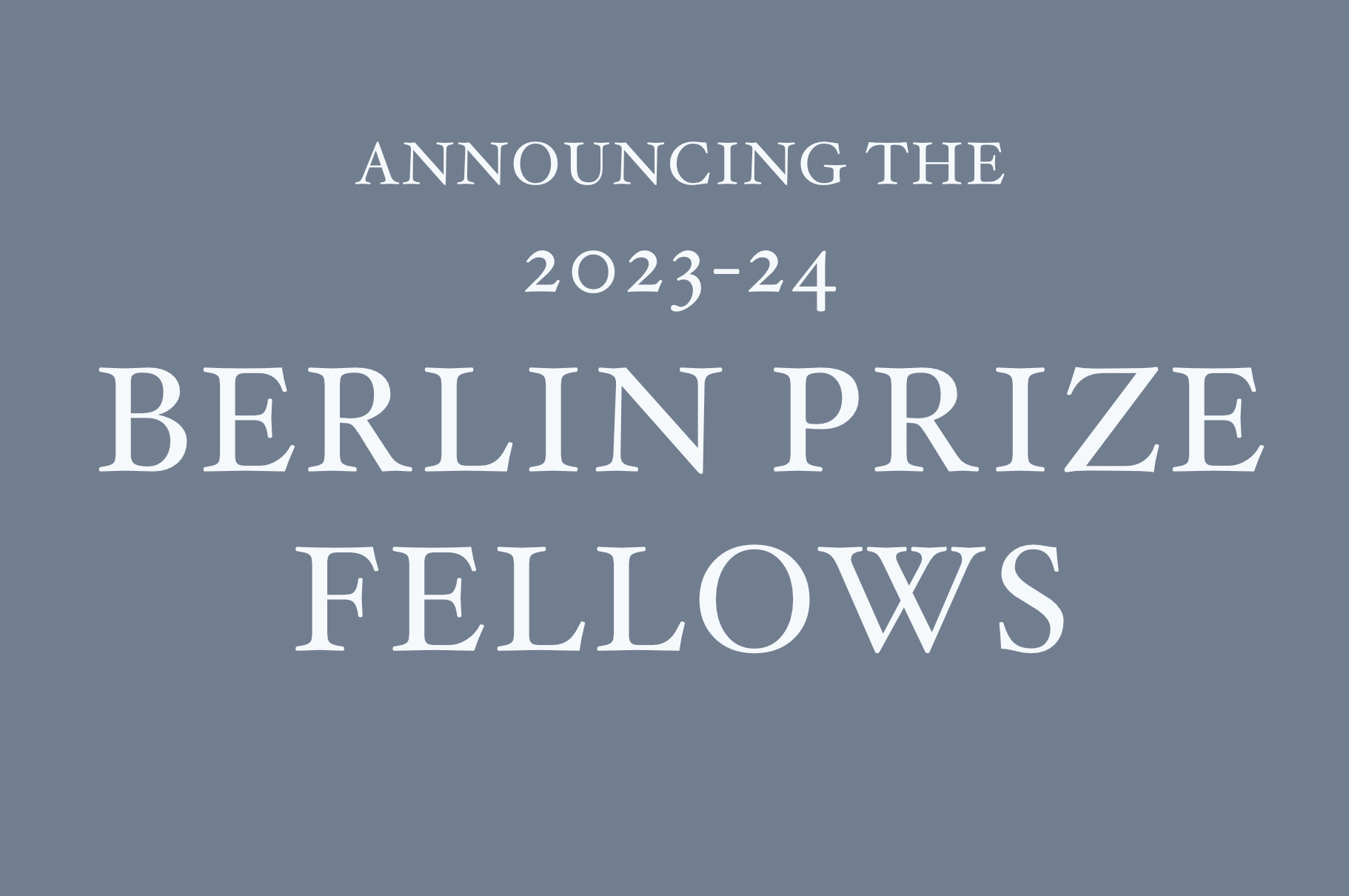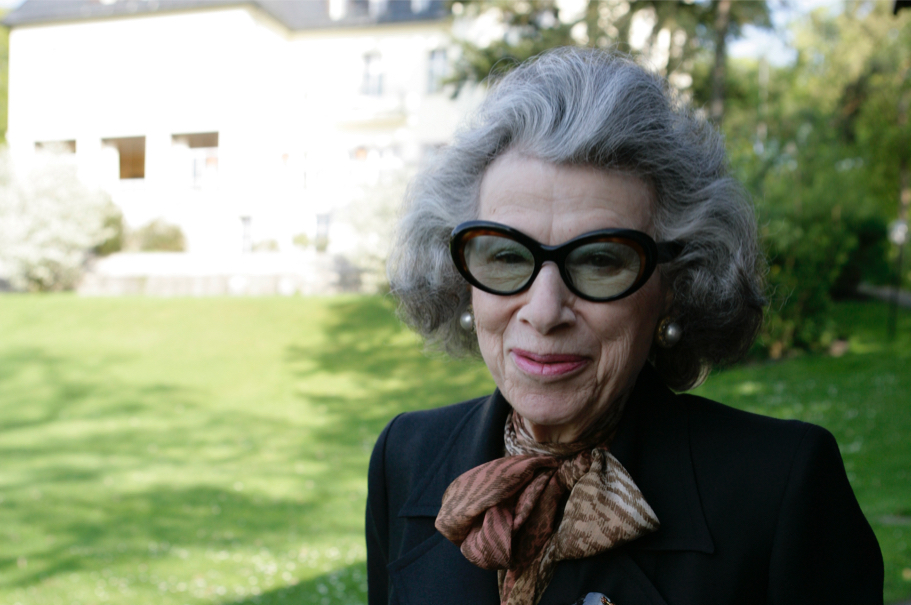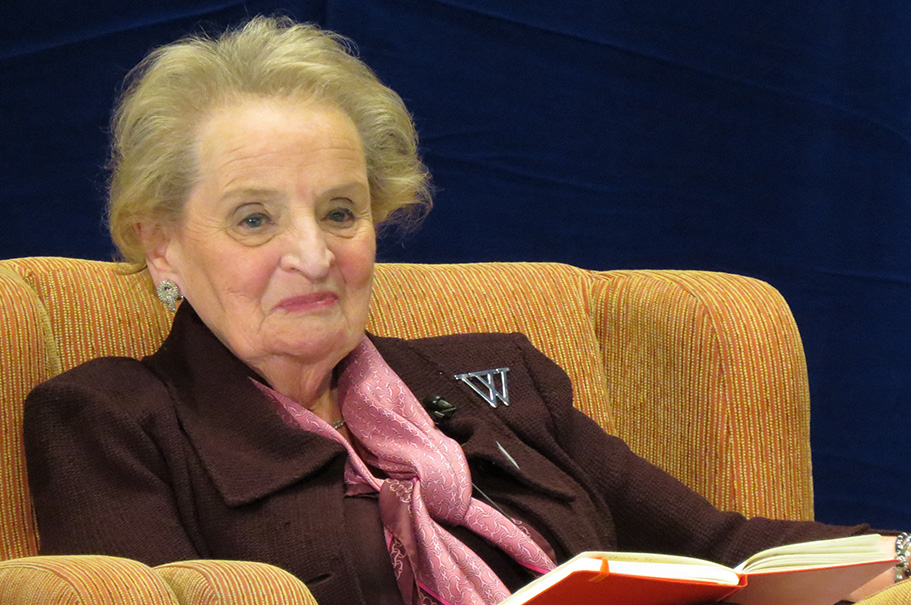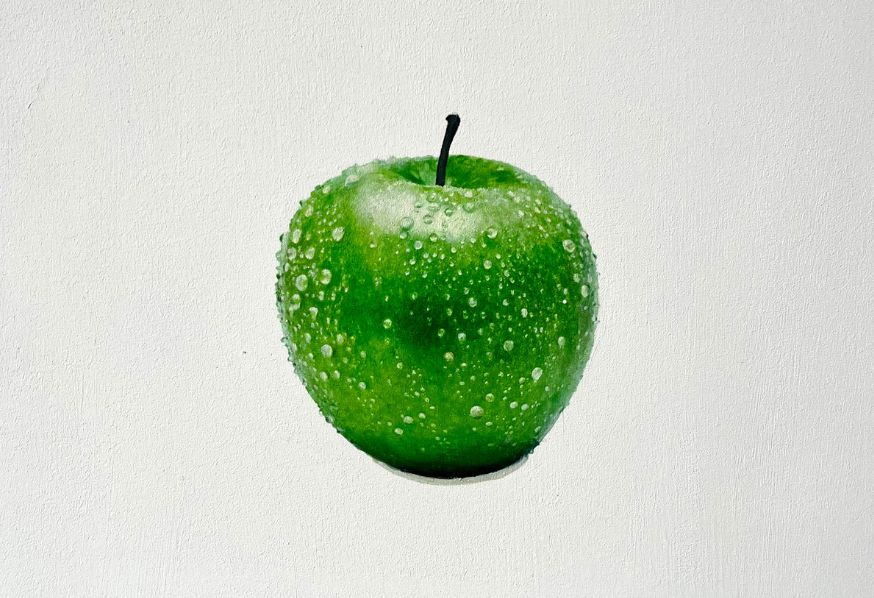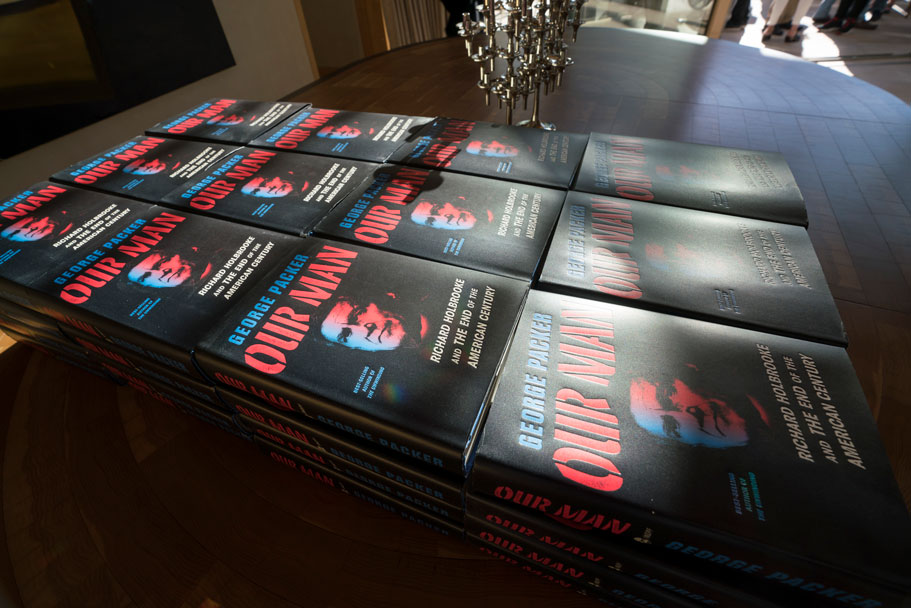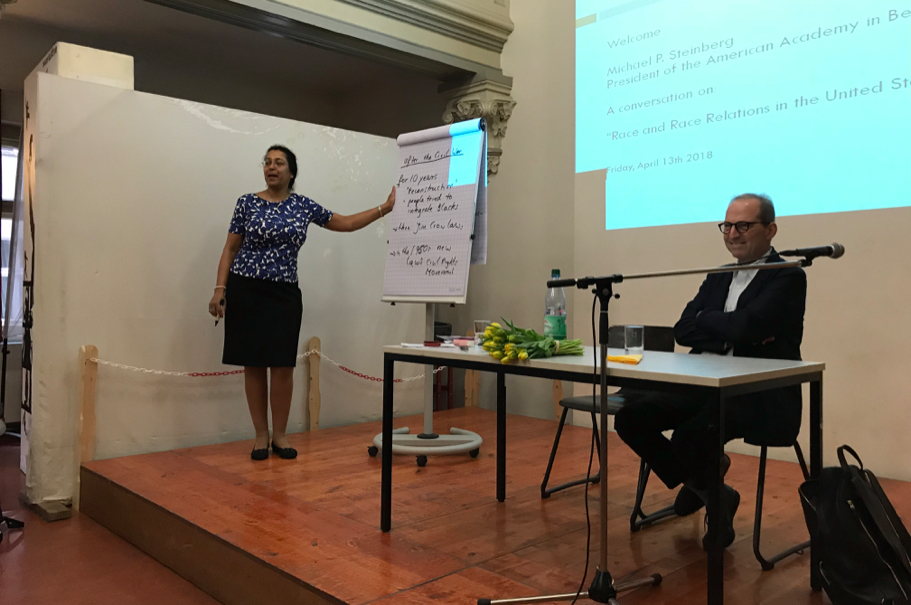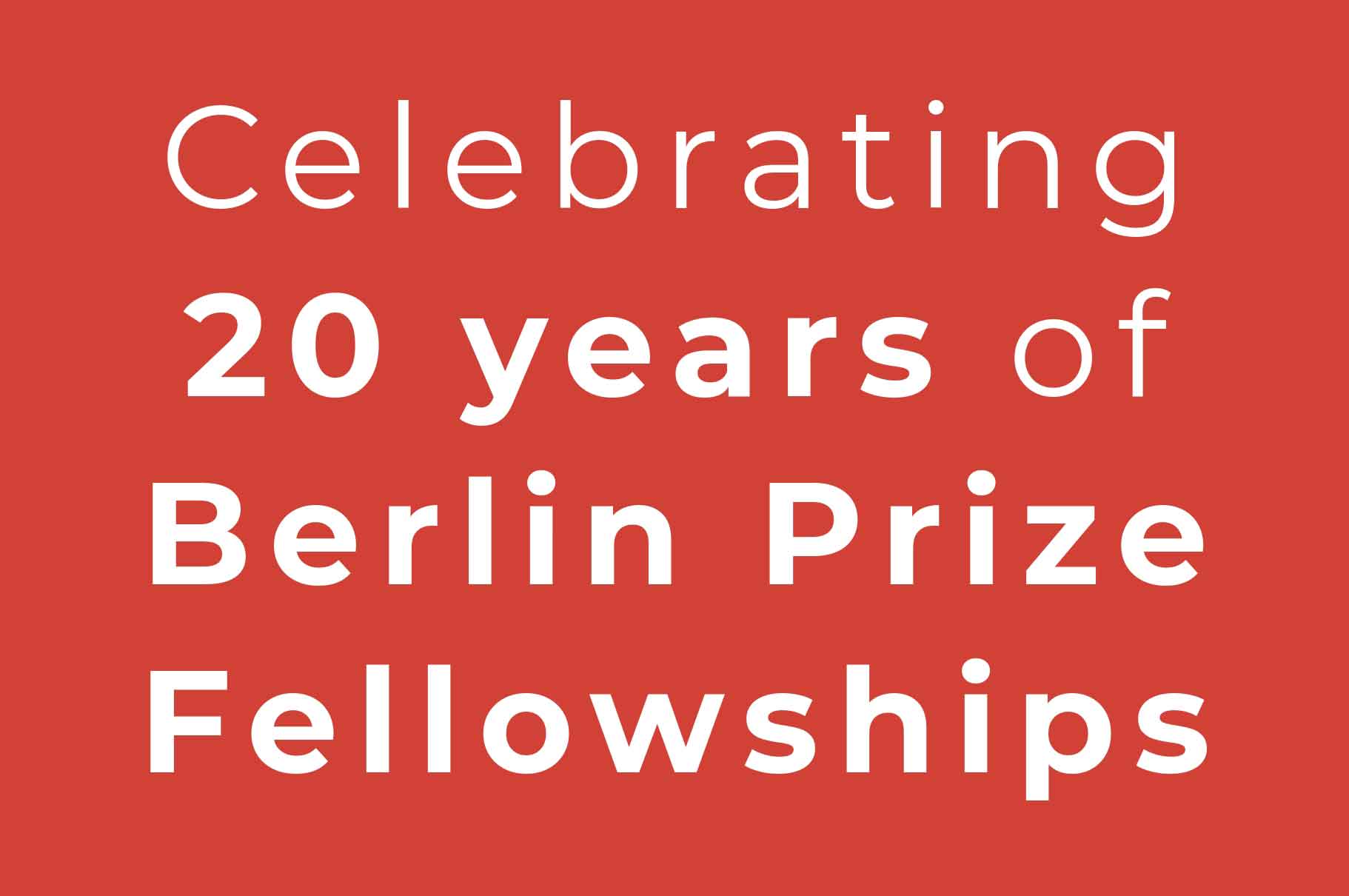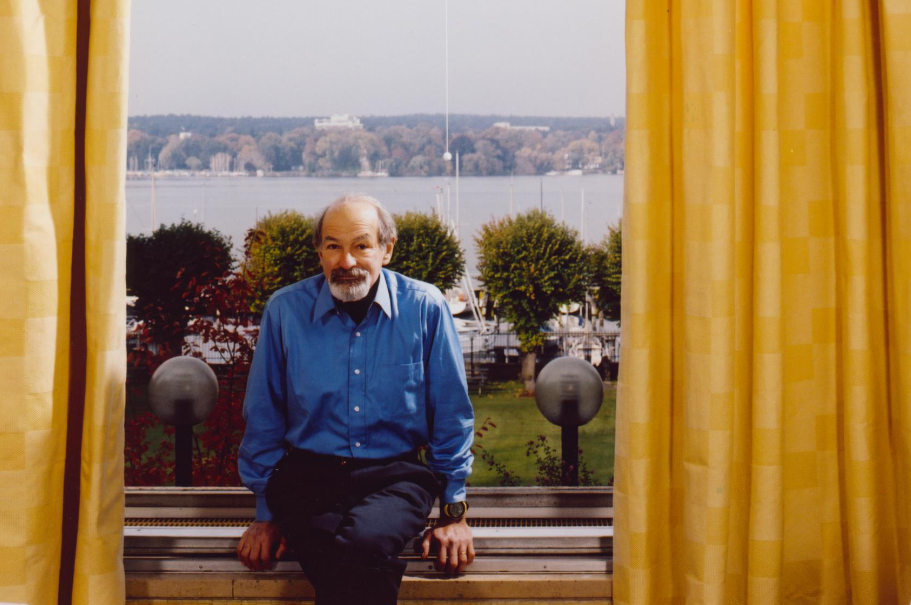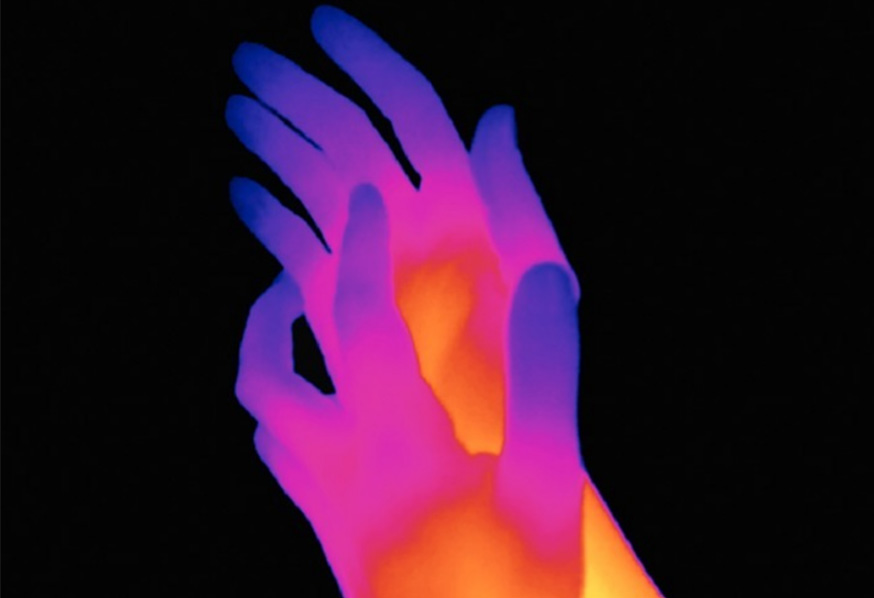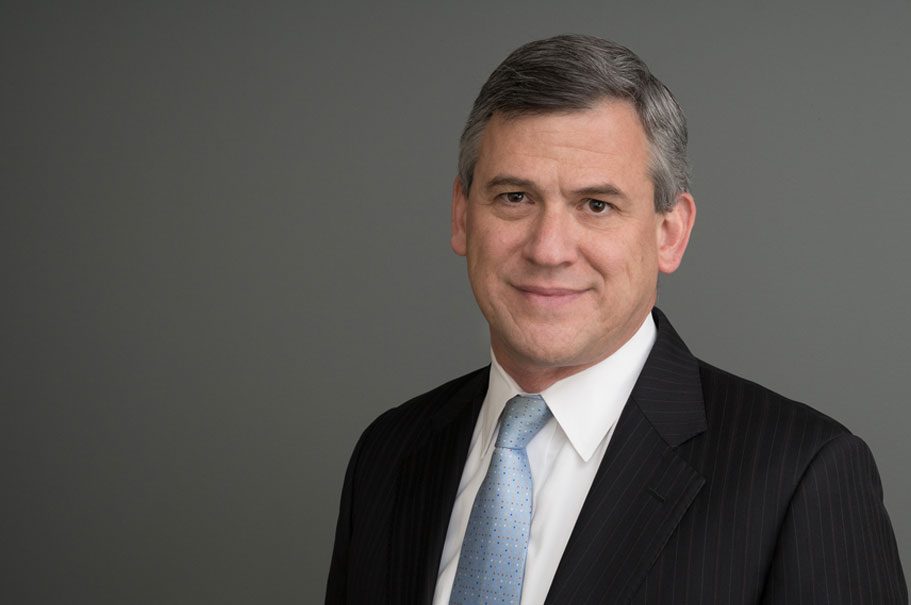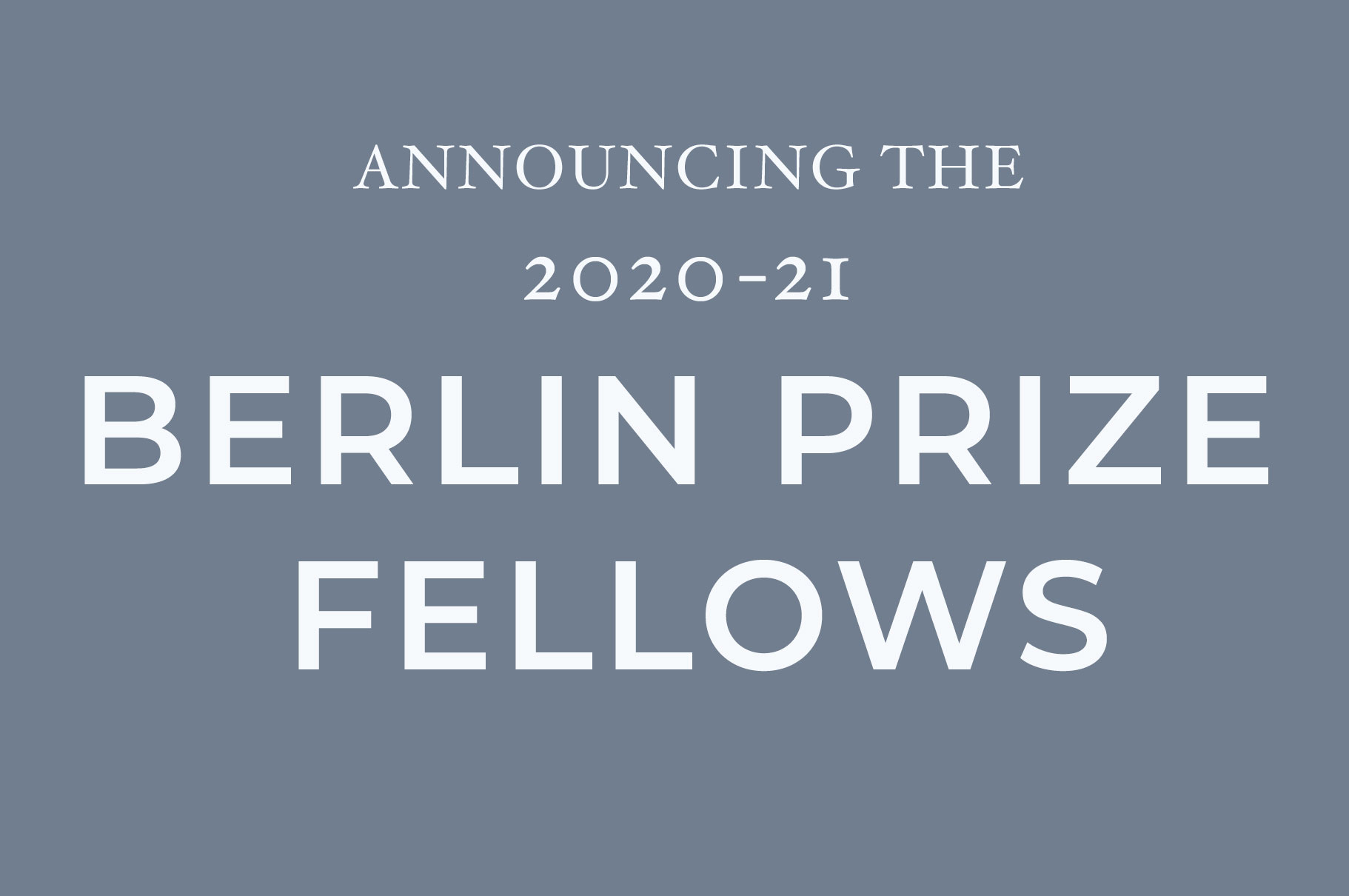
The 2020-21 Berlin Prize Fellows
BERLIN—May 15, 2020—The American Academy in Berlin has awarded Berlin Prizes—semester-long residential fellowships—to scholars, writers, and artists for fall 2020 and spring 2021.
Chosen by an independent selection committee, the 2020-21 class of fellows will explore a wide array of topics, including a first-hand journalistic account of the global refugee crisis, a monograph on the late Berlin-based filmmaker Harun Farocki, a study of African American “return literature,” a new translation of Thomas Mann’s Der Zauberberg, historical investigations of urban life in late nineteenth-century Rio de Janeiro, the African diaspora in modern Europe, the Roman Empire’s ethnic pluralism, the pilfering of German cultural property during the Napoleonic Wars, as well as two novels and artist projects on race and sociopolitical power in recent American history.
The Berlin Prize is awarded annually to US-based scholars, writers, composers, and artists who represent the highest standards of excellence in their fields, from the humanities and social sciences to journalism, fiction, visual arts, and music composition. Fellows receive a monthly stipend, partial board, and comfortable accommodations for a semester at the American Academy’s lakeside Hans Arnhold Center, located in Berlin’s Wannsee district.
The Berlin Prize provides recipients with the time and resources to step back from their daily obligations to engage in academic and artistic projects they might otherwise not pursue. Fellows work throughout the semester with Berlin peers and institutions in the American Academy’s well-established network, forging meaningful connections that lead to lasting transatlantic relationships. During their stay, fellows engage audiences through public lectures, readings, and performances, which form the core of the American Academy in Berlin’s public program.
The Fall 2020 Berlin Prize Fellows
Matthieu Aikins
Contributing Writer, The New York Times Magazine
Matthieu Aikins has reported from Afghanistan and the Middle East since 2008. At the Academy, he will be working on a book about the global refugee crisis, based on his experience traveling with Afghans, to be published by Harper in 2021.
Laila Amine
Assistant Professor of Global Black Literatures, University of Wisconsin-Madison
Laila Amine will work on her monograph Return Literature, Affect, and the Black Diaspora, a comparative study that examines the ubiquitous though overlooked motif of return in black Anglophone literature since 1945. By “return literature,” Amine refers to literary works and critical discourses that have been cordoned off: the African diaspora returning to an ancestral homeland, immigrants or their descendants visiting familial home, and exiles rediscovering their country of origin. At the Academy, she will explore African American writers William G. Smith and Audre Lorde’s respective engagement with individuals of African descent in Berlin.
Lois Banner
Professor Emerita of History, University of Southern California
Combining biography with history and feminist theory, Lois W. Banner will continue her work on the history of beauty by examining the meanings of feminism, fashion, gender, and ethnicity in the life and times of the international film star Greta Garbo.
Susan Bernofsky
Associate Professor of Writing, Columbia University
Susan Bernofsky will be working on a new translation of Thomas Mann’s classic novel Der Zauberberg (The Magic Mountain, 1924), set in a tuberculosis sanatorium in Davos on the eve of World War I.
James N. Green
Carlos Manuel de Céspedes Professor of Latin American History, Brown University
James N. Green will be working on his new book project, “The Crossroads of Sin and the Collision of Cultures: Entertainment, Commerce, and Pleasure in Rio de Janeiro (1860-1930),” which examines the transformations in Brazil’s capital that reflected reconfigurations in Brazilian society and urban life at a time of transition from slavery to freedom, mass immigration from abroad, migration from the hinterland, and a revolution in gender norms.
Amy Kurzweil
Cartoonist
New Yorker cartoonist Amy Kurzweil will work on her second graphic memoir, Artificial: A Love Story, which explores her father’s ambition to “resurrect” – through a marriage of machine learning and the documents saved in a storage unit – the identity of his own father, a Viennese musician who narrowly escaped the Holocaust and died of heart disease fifty years ago.
Ayana Mathis
Writer
Ayana Mathis will work on her second novel, A Violent Woman, the story of a retired itinerant Blues singer in rural Alabama and her estranged daughter’s involvement in a radical political group 1000 miles away, in Philadelphia. The novel explores the complexities and heartbreak of familial love as well as South/North migration, women and rage, and the racial and political climate of 1980s Philadelphia. The political group in which the protagonist becomes involved is inspired by MOVE, a radical separatist group active in Philadelphia from the 1970s to the present day.
Mosi Secret
Writer; Investigative and Literary Journalist
Mosi Secret will work on Teaching Them: The 1960s Experiment to Desegregate the Boarding Schools of the South, a narrative history a little-known group in North Carolina called the Stouffer Foundation, which in the late 1960s and early ’70s financed the racial integration of boarding schools. The foundation’s effort was an ambitious social experiment that sought to test whether elite white children would become more racially tolerant after being exposed to talented black scholarship students.
The Spring 2021 Berlin Prize Fellows
Hakim Abderrezak
Associate Professor of French and Francophone Studies, University of Minnesota
In “Burning the Sea”: Clandestine Crossings in the Mediterranean Seametery, Hakim Abderrezak examines the global refugee crisis through the lens of ethics, aesthetics, poetics, and politics. With a focus on media, art, and literature, he teases out the deleterious implications of misnomers by analyzing dominant narratives and by integrating a crucial southern perspective in the study of migration and refugeeism. In Berlin, he will explore the productions of local German and Middle-Eastern artists proposing alternative narratives of tragic sea crossings.
Nora M. Alter
Professor of Film and Media Arts, Temple University
Nora M. Alter is completing her book Harun Farocki: Forms of Intelligence, which examines the work of the late Berlin-based artist, filmmaker, and writer. Alter will provide a conceptual lens through which to understand Farocki’s media production, from his early films of the late 1960s through his television work of the 1970s and ’80s to his recent contemporary art installations in the new millennium.
Allison Blakely
Professor Emeritus of European and Comparative History, Boston University
Allison Blakely’s project “The African Diaspora in Modern Europe: An Interpretive History” is a continuation of a book project treating the presence, status, and social agency of people of Black African descent in selected European societies, the prevalent attitudes toward them expressed by white Europeans, and the impact of the current wave of mainly Asian immigration on all of this.
Tony Cokes
Professor of Modern Culture and Media, Brown University
Tony Cokes will produce a series of essays and quotations that will become the basis for his new video text and sound animations. The works will critically reflect on figurations of the artist, her/his creative activities, spatial contexts, and roles in relation to political, social, and economic power.
Lawrence Douglas
James J. Grosfeld Professor of Law, Jurisprudence, and Social Thought, Amherst College
Lawrence Douglas will work on Aggression, Atrocity, and the “Verbrecherstaat,” a book that offers a historical and conceptual look at how law has sought to gain dominion over the most extreme crimes. The book aims to show how these efforts have unmoored the law’s traditional anchors to time and place, altered the law’s relationship to victims and victim groups, and volatized the basic distinction between war and policing.
Alice Goff
Assistant Professor of German History and the College, The University of Chicago
Alice Goff will complete a monograph on the upheaval of cultural property in German states during and after the Napoleonic wars. Working at the hinge between intellectual and cultural history, the book follows the stories of royal and religious collections and their custodians to explore how the intimate and profane world of art objects challenged ideal visions of art’s transformative powers in the social and political order during an age of liberal revolution.
Erik Linstrum
Associate Professor of History, University of Virginia
Erik Linstrum, a historian of modern Britain in its imperial, European, and global contexts, will be working on his book manuscript, “Age of Emergency: Living with Violence at the End of Empire,” which explores how British society responded — and failed to respond — to the brutality of colonial wars after 1945. In mapping the networks of activists, soldiers, journalists, missionaries, and novelists who exposed the dark side of these conflicts, the book asks why the same mechanisms that eroded secrecy about violence also undermined action to stop it.
Nandini Pandey
Associate Professor of Classics, University of Wisconsin-Madison
Nandini Pandey’s project explores ancient Roman ways of envisioning and practicing ethnic pluralism, with particular interest in the spaces where consumers collected tokens of their empire’s variety. By tracing historical links between imperial exploitation and the commodification of difference, her project seeks to write a new chapter in the history of diversity with relevance to modern social thought.
Nathalie Peutz
Associate Professor of Arab Crossroads Studies, New York University Abu Dhabi
Nathalie Peutz’s new book project, Gate of Tears: Migration and Impasse in Yemen and the Horn of Africa, examines the ramifications of the UN’s Global Compact on Refugees in an era of gated nations and shrinking humanitarian spaces. Based on ethnographic research in a refugee camp in Djibouti between 2016 and 2020, the project analyzes a complex set of displacements in a geopolitically sensitive region where encamped Yemeni refugees come into direct daily contact with Ethiopian migrants walking toward Yemen—thereby unsettling boundaries between refugees and migrants, Africans and Arabs, and states of captivity and abandonment among those crossing the Red Sea.
Naghmeh Sohrabi
Charles (Corky) Goodman Professor of Middle East History; Director for Research, Crown Center for Middle East Studies, Brandeis University
Naghmeh Sohrabi will be working on her next book project, entitled The Intimate Lives of a Revolution: Iran 1979. Based on several years of ethnographic interviews with former revolutionaries, her book is a reconstruction of the intimate lives that were folded into the vastness of the 1979 Iranian revolution. In doing so, it illuminates the small-scale experiences that together—and after the fact—came to define “revolutionary experience.”
Robert F. Reid-Pharr
Professor of Studies of Women, Gender, and Sexuality and African and African American Studies, Harvard University
Robert F. Reid-Pharr’s project, “James Baldwin: The Making of an American Icon,” examines the life and career of the American writer and activist James Baldwin, extensively utilizing the recently opened Baldwin Archives held at the Schomburg Center for Research in Black Culture as well as materials held at Yale University’s Beineke Library. The work tracks the development of Baldwin’s celebrity status, asking how a desperately poor, black, “queer” New Yorker could rise to become one of the most prominent intellectuals of his generation.
Anna Webber
Composer, Flutist, and Saxophonist
Anna Webber is a flutist, saxophonist, and composer whose interests and work lie in the overlap between avant-garde jazz and new classical music. At the Academy, she will be working on a new project focused on a study of just intonation and tuning theory.

